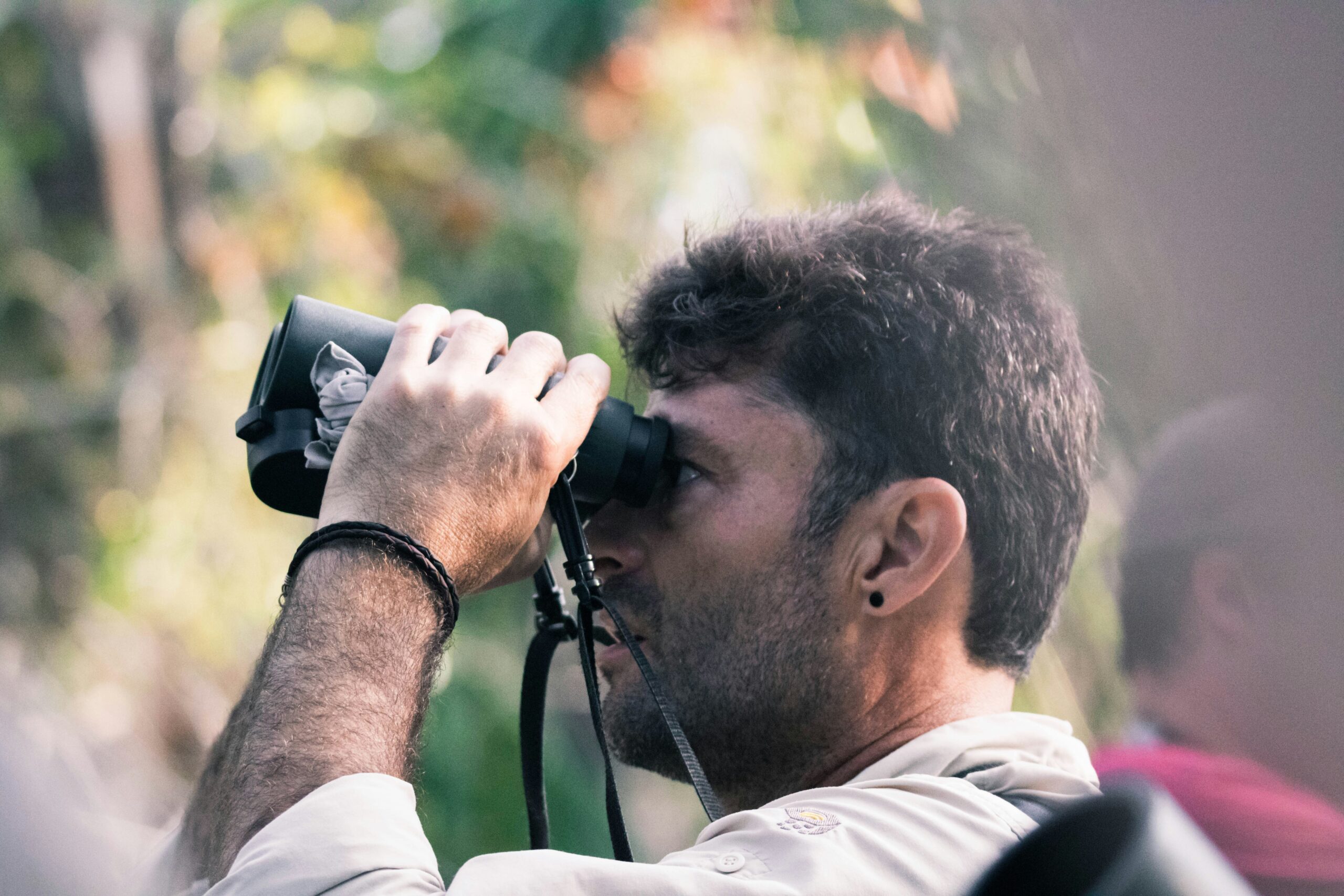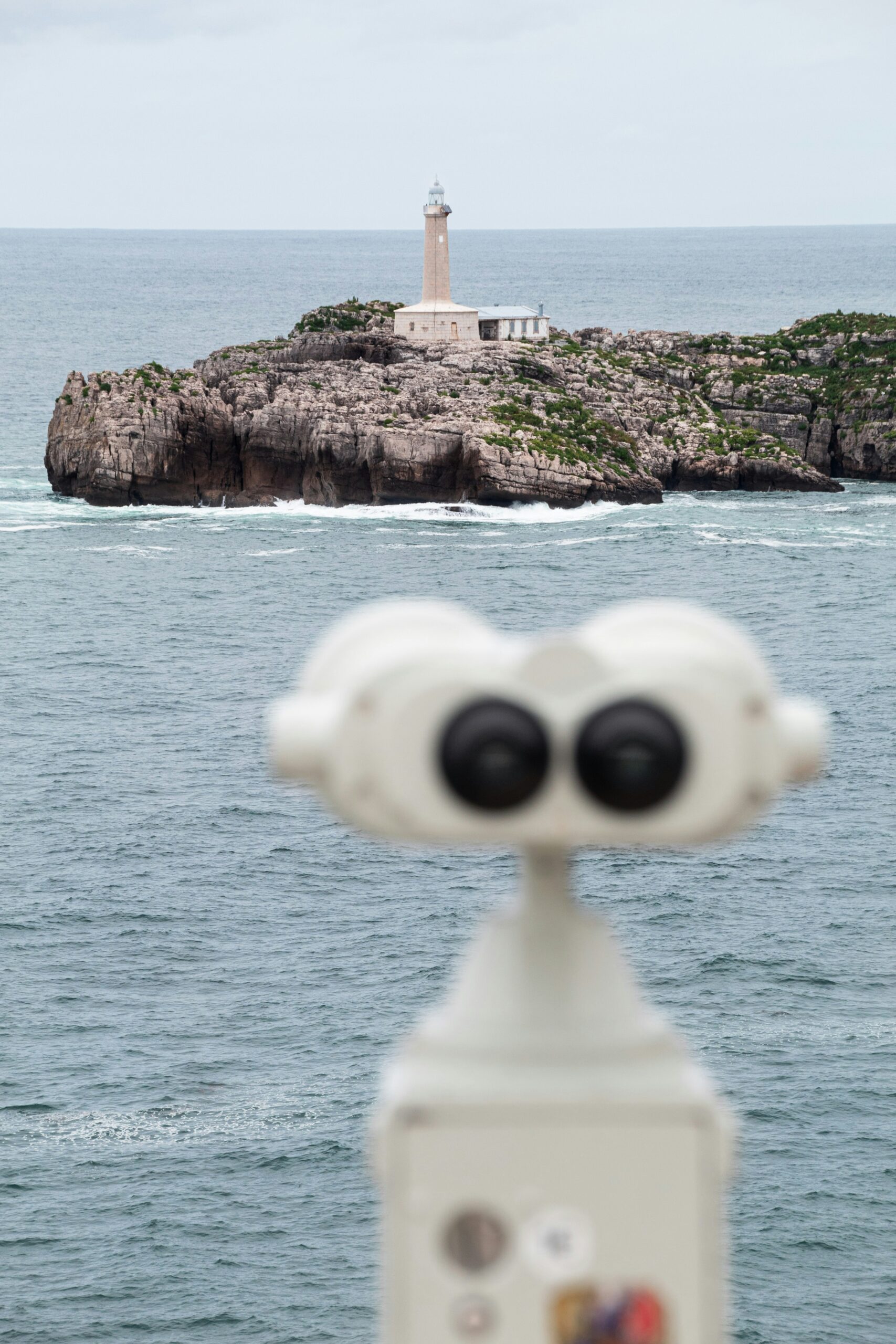If you’re just starting out in the fascinating world of birding, finding the right pair of binoculars is essential to enhance your experience. But with countless options available, it can be overwhelming to choose the perfect one. That’s why we’ve compiled a list of some highly recommended entry-level birding binoculars that will help you spot and admire nature’s winged wonders with ease. From compact and lightweight designs to budget-friendly options, we’ve got you covered. So grab your binoculars and get ready to embark on a thrilling birding adventure!

Understanding Binocular Basics
Understanding Magnification
When it comes to binoculars, one of the first things you need to understand is magnification. Magnification refers to how much larger an object appears when viewed through the binoculars compared to when viewed with the naked eye. For example, if a pair of binoculars has a magnification of 10x, it means that the object you are looking at will appear 10 times closer than it actually is.
Importance of Objective Lens Diameter
Another important aspect to consider when choosing binoculars is the objective lens diameter. This refers to the size of the front lenses of the binoculars, measured in millimeters. A larger objective lens diameter allows more light to enter the binoculars, resulting in a brighter, clearer image. This is particularly important when birdwatching, as it allows you to see fine details and vibrant colors.
Significance of Field of View
Field of view refers to the width of the area that you can see when looking through the binoculars. It is usually expressed in degrees or as the width of the area in feet at a distance of 1,000 yards. Generally, a wider field of view is preferred for birdwatching, as it allows you to easily track birds as they move across the sky or through foliage.
Understanding Exit Pupil and Eye Relief
Exit pupil refers to the size of the beam of light that exits the eyepiece of the binoculars and enters your eye. It is determined by dividing the objective lens diameter by the magnification. A larger exit pupil allows more light to reach your eye, resulting in a brighter image. Eye relief, on the other hand, refers to the distance between your eyes and the eyepieces of the binoculars. It is important to choose binoculars with a comfortable eye relief, especially if you wear glasses.
Importance of High Quality Optics
Benefits of Quality Glass
When it comes to binoculars, the quality of the glass used in the lenses is crucial. High-quality glass ensures that the images you see are sharp, clear, and without distortions. It also enhances the color accuracy and contrast of the image, allowing you to appreciate the beautiful plumage of birds in all its glory. Investing in binoculars with quality glass will greatly enhance your birdwatching experience.
Role of Lens Coatings and Prisms
Lens coatings play an important role in reducing glare and increasing light transmission. They minimize reflections and provide a brighter and sharper image. Additionally, prisms are responsible for flipping the image in binoculars so that it appears right-side up and properly oriented. High-quality prisms ensure accurate image alignment and improve overall image quality.
Importance of Weight and Size
When considering binoculars for birdwatching, weight and size are important factors to take into account. You will likely spend long hours in the field, so lightweight and compact binoculars will be more comfortable to carry around. Look for binoculars that strike a balance between portability and optical performance to ensure you can enjoy birdwatching without straining your neck or getting fatigued.
Understanding Different Binocular Types and their Suitable Use
Porro Prism Binoculars
Porro prism binoculars are a traditional type of binoculars. They have an offset prism that creates a wider body, making them larger and bulkier compared to roof prism binoculars. However, Porro prism binoculars tend to offer a wider field of view and better depth perception. They are suitable for birdwatching in areas with less movement, such as open fields or stationary observation points.
Roof Prism Binoculars
Roof prism binoculars are known for their sleek and compact design. They are more lightweight and easier to handle compared to Porro prism binoculars. The prisms in roof prism binoculars are lined up in a straight line, allowing for a straight-through barrel design. They are ideal for birdwatching in fast-moving or mobile situations, such as hiking or following birds in flight.
Compact Binoculars
Compact binoculars are designed to be lightweight and portable. They are usually smaller in size and offer a smaller objective lens diameter, making them a perfect choice for birdwatchers on the go. Compact binoculars are great for casual birdwatching or for those who want to carry binoculars with them at all times. However, they may sacrifice some optical performance in favor of portability.
Nikon Prostaff 3s
Review of Optical Quality
The Nikon Prostaff 3s binoculars offer exceptional optical quality for their price range. With a magnification of 8x and an objective lens diameter of 42mm, they provide a bright and clear image with good color fidelity. The multilayer-coated lenses and prisms minimize reflections and maximize light transmission, resulting in sharp and detailed views of birds.
Assessing the Build and Design
The Prostaff 3s binoculars are well-built and designed to withstand the rigors of outdoor use. They have a durable rubber armor coating that provides a secure grip and protects against bumps and shocks. The binoculars are also waterproof and fogproof, ensuring reliable performance even in challenging weather conditions.
Evaluating the Price
In terms of price, the Prostaff 3s binoculars offer excellent value for money. They provide great optical performance and rugged build quality at a relatively affordable price point. Whether you’re a beginner or a more experienced birder looking for an entry-level option, the Nikon Prostaff 3s binoculars are definitely worth considering.

Celestron Nature DX
Review of Optical Quality
The Celestron Nature DX binoculars deliver impressive optical quality, especially considering their affordable price. With a magnification of 8x and an objective lens diameter of 42mm, they provide clear and bright images with good color reproduction. The fully multi-coated lenses enhance light transmission and minimize reflections, resulting in sharp and detailed views of birds.
Assessing the Build and Design
The Nature DX binoculars are well-constructed and designed for outdoor use. They feature a durable polycarbonate body that is both lightweight and rugged. The rubber armor coating provides a comfortable and secure grip, as well as protection against impacts. These binoculars are also waterproof and fogproof, ensuring reliable performance in various weather conditions.
Evaluating the Price
Considering their optical quality, build, and design, the Celestron Nature DX binoculars offer excellent value for money. They are a great choice for birdwatchers on a budget who still want reliable performance and decent optics. Whether you’re a beginner or an experienced birder, the Nature DX binoculars are a solid option for entry-level birding.
Bushnell H2O Waterproof/Fogproof Compact Roof Prism Binocular
Review of Optical Quality
The Bushnell H2O binoculars provide good optical quality for their compact size. With a magnification of 8x and an objective lens diameter of 25mm, they offer a decent balance between portability and optical performance. The fully multi-coated lenses ensure sharp and bright images, although the smaller objective lenses may result in a slightly narrower field of view compared to larger binoculars.
Assessing the Build and Design
These binoculars are designed to be compact and lightweight, making them easy to carry around for extended periods. The rubber armor coating provides a comfortable and secure grip, while also offering protection from bumps and shocks. The H2O binoculars are also waterproof and fogproof, making them suitable for use in various weather conditions.
Evaluating the Price
The Bushnell H2O binoculars are reasonably priced, considering their compact size and features. They offer good optical quality and durability, making them a solid choice for birdwatching enthusiasts who prioritize portability. If you’re looking for a compact binocular option that doesn’t compromise on performance, the H2O binoculars are worth considering.

Adorrgon 12×42 Powerful Binoculars
Review of Optical Quality
The Adorrgon Powerful Binoculars offer impressive optical quality, particularly for their price range. With a magnification of 12x and an objective lens diameter of 42mm, they provide clear and detailed views of birds. The fully multi-coated lenses and prisms enhance light transmission and reduce reflections, resulting in bright and sharp images with good color accuracy.
Assessing the Build and Design
These binoculars are solidly built and designed for outdoor use. The durable rubber armor coating provides a comfortable and secure grip, as well as protection against impacts and bumps. They are also waterproof and fogproof, ensuring reliable performance in various weather conditions. The Adorrgon Powerful Binoculars are designed to be comfortable to use, with an ergonomic design that reduces eye strain during prolonged birdwatching sessions.
Evaluating the Price
Considering their optical quality and build, the Adorrgon Powerful Binoculars offer excellent value for money. They provide impressive magnification and clarity at an affordable price point. Whether you’re a beginner or a more experienced birder, these binoculars are a great option for those seeking powerful optics without breaking the bank.
Eyeskey HD 8X42 Compact Monocular
Review of Optical Quality
The Eyeskey HD Compact Monocular offers excellent optical quality, particularly considering its compact size. With a magnification of 8x and an objective lens diameter of 42mm, it provides clear, bright, and detailed views of birds. The fully multi-coated lenses and prisms maximize light transmission and reduce glare, resulting in sharp and vibrant images.
Assessing the Build and Design
This monocular is well-built and designed to be compact and lightweight, making it easy to carry around. The rubber armor coating provides a secure grip and protection against impacts. It is also waterproof and fogproof, ensuring reliable performance in various weather conditions. The Eyeskey HD Compact Monocular is designed for comfort, with an ergonomic shape that fits comfortably in your hand during birdwatching sessions.
Evaluating the Price
Considering its optical quality and compact design, the Eyeskey HD Compact Monocular is reasonably priced. It offers excellent value for money, especially for birdwatchers who prefer the convenience and portability of a monocular. Whether you’re a beginner or an experienced birder, this compact monocular is a great option for entry-level birding.
How to Choose a Suitable Binocular for Birding
Identifying Personal Requirements
When choosing a suitable binocular for birding, it is important to consider your personal requirements. Think about factors such as your level of experience, the type of birding you plan to do, and your budget. Identifying your specific needs will help you narrow down your options and find a binocular that is perfect for you.
Understanding Various Brands and Price Ranges
There are various brands and price ranges available when it comes to birding binoculars. Research different brands and models to see which ones are reputable and reliable. Consider your budget and how much you are willing to invest in a pair of binoculars. Remember, quality optics often come with a higher price tag, so it’s important to strike a balance between your budget and the features you need.
Seeking Advice from Experienced Birdwatchers
If you’re unsure about which binoculars to choose, it can be helpful to seek advice from experienced birdwatchers. They can provide insights and recommendations based on their own experiences. Joining birdwatching communities or forums can also give you a chance to connect with fellow birders and ask for their recommendations. Their firsthand knowledge and expertise can be invaluable in helping you make an informed decision.
Being Mindful of Future Needs
When choosing a suitable binocular for birding, it’s important to think about your future needs as well. As you gain experience and your birdwatching skills improve, you may want to upgrade to a more advanced pair of binoculars. Considering this beforehand can save you from having to buy another pair sooner than expected. Opting for a mid-range or higher-end model that will grow with you can be a wise investment in the long run.
Maintaining your Entry-Level Binoculars
Proper Way to Clean Binocular Lenses
To maintain the optical quality of your entry-level binoculars, it’s important to clean the lenses properly. Use a soft, lint-free cloth or a lens cleaning brush to remove any dust or debris from the lenses. Avoid using abrasive materials or excessive force, as this can scratch the lens surface. If necessary, dampen the cloth slightly with a lens cleaning solution specifically designed for optics.
Storing the Binoculars
When not in use, it’s important to store your binoculars properly to protect them from damage. Keep them in a dry and dust-free environment, preferably in a protective case or pouch. Avoid exposing them to extreme temperatures or humidity, as this can damage the internal components and fog up the lenses. Storing them in a safe and controlled environment will prolong their lifespan and ensure they are ready for use when you need them.
Repairs and Warranty Options
If your entry-level binoculars require repairs or maintenance, it’s important to check if they are covered under warranty. Many reputable brands offer warranties that cover defects in materials or workmanship. Contact the manufacturer or refer to the product documentation for information on how to proceed with repairs. It’s also a good idea to familiarize yourself with the warranty terms and conditions to know what is covered and what is not.
In conclusion, understanding the basics of binoculars is essential when choosing the right pair for birdwatching. Factors such as magnification, objective lens diameter, field of view, and exit pupil should be considered to ensure optimal viewing experience. Investing in high-quality optics, such as quality glass, lens coatings, and prisms, is crucial for sharp and clear images. Different types of binoculars, such as Porro Prism, Roof Prism, and Compact binoculars, offer various advantages depending on the birding situation. Considering the optical quality, build and design, and price of different binoculars, such as Nikon Prostaff 3s, Celestron Nature DX, Bushnell H2O, Adorrgon 12×42, and Eyeskey HD 8X42, can help you make an informed decision. Additionally, understanding personal requirements, seeking advice from experienced birdwatchers, and being mindful of future needs are important when choosing a suitable binocular for birding. Proper maintenance, including cleaning and storing binoculars correctly, is crucial to ensure their longevity. By following these guidelines, you can enjoy the wonderful world of birdwatching with a suitable pair of entry-level binoculars.

